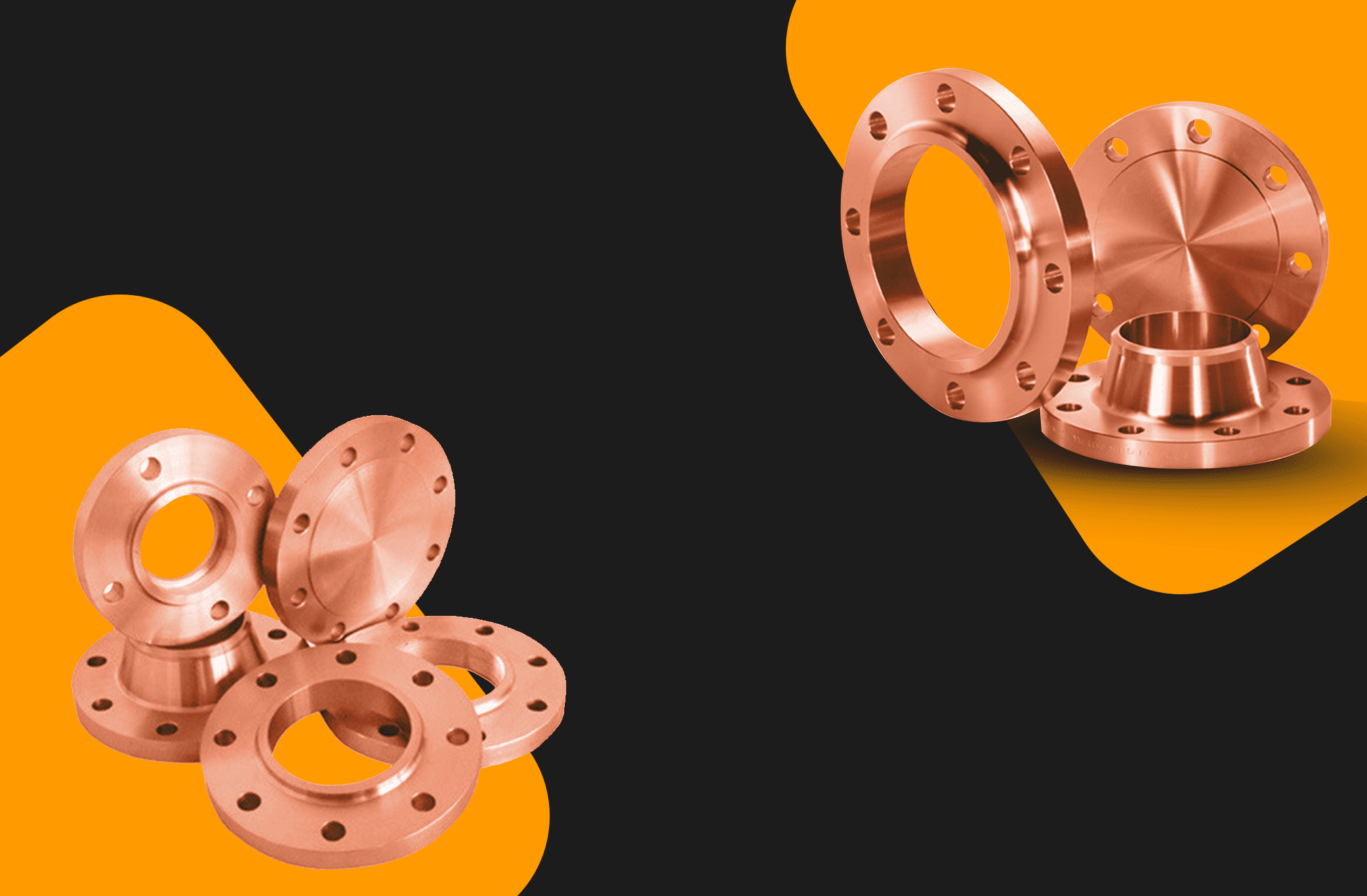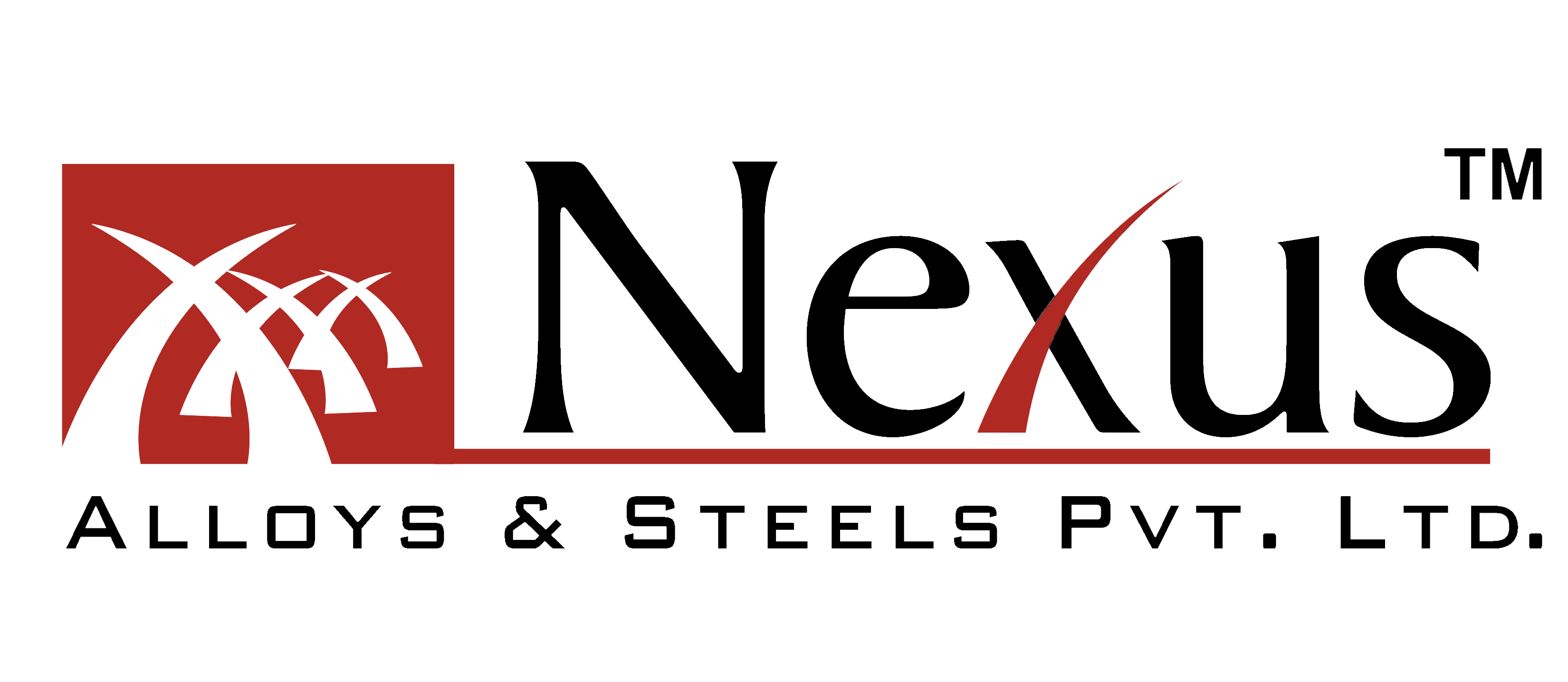Get a Free Quote
COPPER NICKEL FORGED FLANGES
Nexus Alloys and Steels: Leading Manufacturer and Exporter of Copper Nickel Flanges. Our Cu-Ni flanges boast excellent corrosion resistance, enhanced strength, and wear resistance compared to copper
The alloying of Cupronickel flanges with materials like aluminum, chromium, or tin ensures versatility. Copper Nickel C70600 (90/10) and C71500 (C70/30) flanges, known for their resistance to pitting and ease of welding, contribute to a robust and resilient material supply for the challenges of the future

COPPER NICKEL FORGED FLANGES
Description
Nexus Alloys and Steels, a distinguished manufacturer and exporter, proudly produces high-quality Copper Nickel Flanges that demonstrate numerous advantages. These flanges exhibit exceptional corrosion resistance, although concerns have been raised about their low corrosion-fatigue strength. In comparison to standard copper flanges, Copper Nickel Alloy Flanges offer superior corrosion resistance, increased overall strength, and exceptional wear resistance
The straightforward process of amalgamating Cu-Ni flanges with diverse materials and metals significantly benefits modern society, ensuring the provision of materials for an increasingly challenging future. Frequent alloying of Cupronickel Flanges with elements such as aluminum, chromium, or tin adds to their versatility and performance
Notably, Copper Nickel C70600 (90/10) and C71500 (C70/30) Flanges emerge as highly resilient options, displaying resistance to pitting, elevated electrical resistivity, and ease of welding and fabrication. This combination of qualities positions these flanges as reliable contributors to a robust and adaptable material supply, addressing the evolving needs of various industries. Nexus Alloys and Steels proudly commits to excellence in producing Copper Nickel Flanges that meet the highest standards of performance, durability, and versatility
Copper Nickel Forged Flanges Grades :
- Cu-Ni 90/10 (UNS C70600) : This grade, composed of 90% copper and 10% nickel, demonstrates exceptional corrosion resistance in various environments. Known for its versatility, Cu-Ni 90/10 finds applications in marine engineering, desalination, and heat exchanger systems. Its balanced composition ensures a harmonious blend of strength and corrosion resistance
- Cu-Ni 70/30 (UNS C71500) : With a composition of 70% copper and 30% nickel, Cu-Ni 70/30 excels in environments where corrosion resistance is paramount. Widely utilized in marine and chemical processing industries, this grade offers an optimal combination of strength, ductility, and resistance to biofouling
Types
APPLICATION
Applications of Copper Nickel Alloys: Cu-Ni 90/10 (UNS C70600) and Cu-Ni 70/30 (UNS C71500)
Copper nickel alloys, including Cu-Ni 90/10 and Cu-Ni 70/30, find versatile applications across various industries due to their exceptional properties. Here are common applications for these alloys:
- Heat Exchangers and Condensers : Cu-Ni 90/10 is particularly well-suited for heat exchangers and condensers in power plants and industrial settings. Its high thermal conductivity and corrosion resistance make it a reliable choice for efficient heat transfer
- Desalination Systems : Cu-Ni 90/10 is commonly employed in desalination plants where it withstands the corrosive effects of seawater. Its corrosion resistance, coupled with good fabrication properties, makes it an essential material for components in desalination systems
- Chemical Processing : Cu-Ni 70/30 is preferred in chemical processing industries due to its excellent corrosion resistance to a wide range of chemicals. It is used in applications such as chemical reactors, pipelines, and valves where resistance to corrosive media is critical
- Offshore Structures : Cu-Ni 70/30 is utilized in the construction of offshore structures, including platforms and pipelines. Its corrosion resistance and mechanical strength contribute to the longevity and reliability of these structures in harsh marine environments
- Condenser Tubes : Both Cu-Ni 90/10 and Cu-Ni 70/30 are commonly employed in the manufacturing of condenser tubes. Their resistance to biofouling and corrosion makes them well-suited for maintaining the efficiency of heat exchange systems
- Shipbuilding Components : Both alloys are extensively used in the production of shipbuilding components, including pipes, fittings, and valves. The alloys' combination of strength, corrosion resistance, and ease of fabrication meets the demanding requirements of maritime applications
- Power Generation : Copper nickel alloys play a crucial role in power generation systems, including nuclear power plants and fossil fuel power plants. They are utilized in various components, such as condenser tubes and heat exchangers, where corrosion resistance is essential
- Petrochemical Industry : In the petrochemical industry, Cu-Ni 70/30 is employed in equipment and piping systems where resistance to corrosion from corrosive fluids is critical. Its durability and resistance to stress corrosion cracking make it a reliable choice
- Aerospace Components : Copper nickel alloys may find applications in certain aerospace components due to their combination of strength, corrosion resistance, and thermal properties, although specific aerospace grades may be preferred for certain applications
These applications highlight the versatility of Cu-Ni 90/10 and Cu-Ni 70/30 alloys, making them integral materials in critical industries where corrosion resistance and durability are paramount. Always refer to specific product data sheets and industry standards for precise information related to your application
TECHNICAL SPECIFICATIONS
Material Composition :
- Cu-Ni 90/10 (UNS C70600)
- Copper (Cu): 88.6 - 91.4%
- Nickel (Ni): 9.0 - 11.0%
- Iron (Fe): 1.0 - 1.8%
- Cu-Ni 70/30 (UNS C71500)
- Copper (Cu): 70.0 - 73.0%
- Nickel (Ni): 29.0 - 32.0%
- Iron (Fe): 0.4 - 1.0%i>
- Manganese (Mn): 0.5 - 1.0%
Physical Properties :
- Density : Cu-Ni 90/10: 8.94 g/cm³, Cu-Ni 70/30: 8.95 g/cm³
- Melting Point : Cu-Ni 90/10: 1,174°C, Cu-Ni 70/30: 1,176°C
Mechanical Properties :
- Tensile Strength : Cu-Ni 90/10: 280 MPa, Cu-Ni 70/30: 340 MPa
- Yield Strength : Cu-Ni 90/10: 125 MPa, Cu-Ni 70/30: 160 MPa
- Elongation at Break : Cu-Ni 90/10: 30%, Cu-Ni 70/30: 25%
Corrosion Resistance : Both Cu-Ni 90/10 and Cu-Ni 70/30 exhibit excellent resistance to corrosion in seawater, brackish water, and various chemical environments
Thermal Conductivity : Cu-Ni 90/10: 44 W/(m•K), Cu-Ni 70/30: 29 W/(m•K)
Electrical Conductivity : Cu-Ni 90/10: 7.5% IACS (International Annealed Copper Standard), Cu-Ni 70/30: 5.3% IACS
Magnetic Permeability : CuBoth alloys are generally non-ferromagnetic
Applications :
- Cu-Ni 90/10: Marine engineering, condensers, heat exchangers, desalination systems
- Cu-Ni 70/30: Shipbuilding, offshore structures, chemical processing
Standards Compliance : ASTM B466, ASTM B467, ASTM B151, DIN 17664, EN 12163, and other relevant international standards
SERVICES & CERTIFICATES
- The testing facility offers analysis, mechanical tests, ultrasound, PMI, hydrostatic, radiography, corrosion, metallography, and miscellaneous tests
- Test Certificates : Manufacturer Test Certificates per EN 10204 type 3.1 & 3.2 and NABL lab test reports
